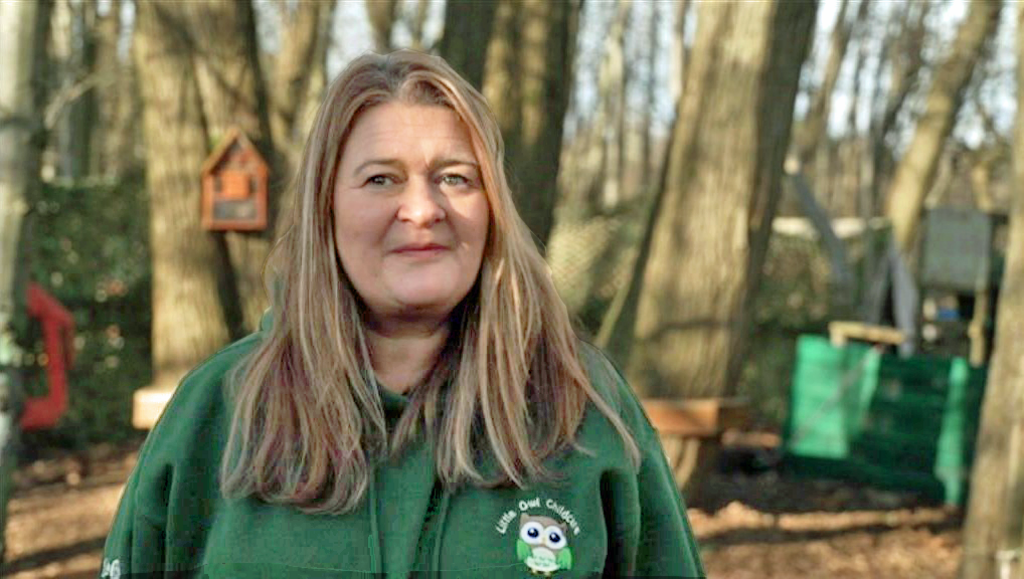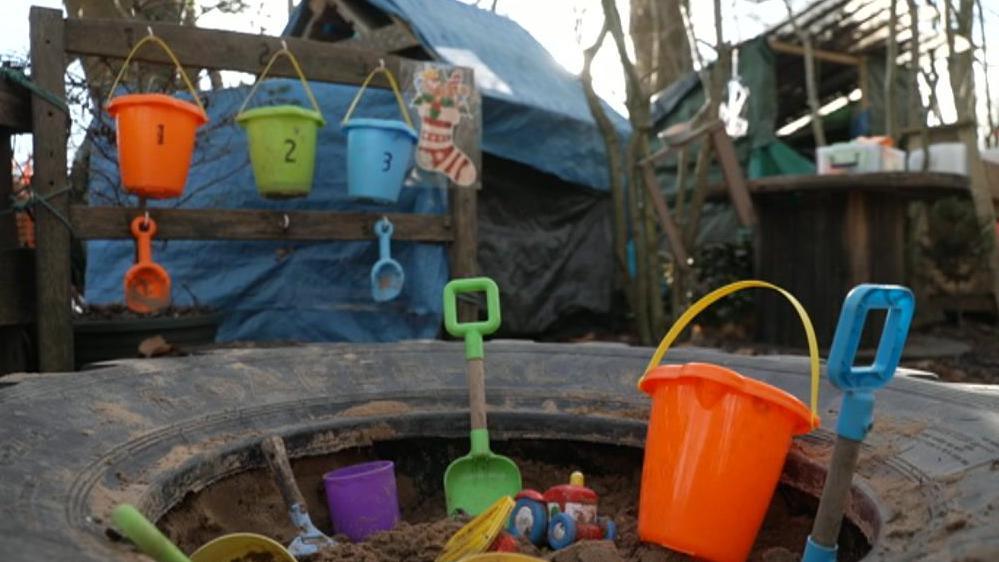Nurseries warn over free childcare expansion plans

Childcare provider Sarah McCormick said her nurseries were already full
- Published
A childcare provider is warning it may not have enough spaces or staffing to meet an increase in demand for places this year.
A government expansion of free childcare offered to working families comes into effect in stages from April.
Sarah McCormick, director of Little Owls Childcare, which manages three nurseries in Staffordshire, said "our nurseries are full".
The Department for Education (DfE) said it was confident "in the strength of our childcare market" and would be starting a national recruitment campaign.
Currently free childcare is only on offer to children aged three and four and the amount varies according to whether their parents or carers are in employment.
A 20% subsidy is also available for younger children of some working parents.

The changes to free childcare are set to be introduced from April
From April, two-year-old children will become entitled to 15 hours each week in term time, if their parents are working.
If the childcare is spread out over 12 months, the number of free hours on offer each week reduces.
In September, the age requirement for the weekly 15 hours of free childcare drops to nine months old.
Then from September 2025, the offer rises to 30 hours each week in term time, for all children of working parents from the age of nine months.
Ms McCormick said their nurseries could handle the funded hours for parents of the children who already use their sites.
"However it's going to be very difficult to invite new children to join us with their funded hours," she added.
"Where we have got space to have more children we haven't got enough staff to offer those places.
"This is a challenge the whole of the childcare sector is facing."

The Department for Education claimed the chances could save some families £6,500 annually
The Department for Education calculated the policies, announced by the chancellor in the 2023 spring budget, could save some families £6,500 each year.
Mothers who used parent and baby groups run by a charity, Spark, in Burntwood, Staffordshire, gave their reaction to the changes.
Sophie Payne, who has eight-month-old twins, said she was not be able to go back to work full time due to the cost of childcare.
"The government contribution will be great as it allows me to go back to work more," she said.
Georgie Chetwood's two-year-old son would be entitled to 15 hours each week in term time from April, but she expected her cost-saving would be limited by the detail of the policy.
"The free hours don't cover the school holidays. I work in the NHS and so don't have holidays off," she said.
"We were under the impression we'd be saving quite a lot financially. But it turns out we won't be saving all that much at the end of it."

Some parents said the changes would help them return to work but questioned the amount of financial savings they would see
Figures from the National Day Nurseries Association revealed 72 nurseries closed in the 12 months up to September 2023, a rise of 50% on the year before.
"The rising costs and the lack of rising funding has had massive implications on childcare providers' stability and ability to stay afloat. It's such a shame," Ms McCormick said.
The DfE said it was confident the childcare industry could deliver the expansion and was also investing up to £180m in training, qualifications and guidance.
“We are also investing hundreds of millions of pounds to increase rates paid for government-funded hours, which can be used to support staff salaries," a spokesperson added.
On top of the recruitment campaign, they added they were looking to bring in a "new accelerated apprenticeship route" into the sector.
More like this story
- Published16 January 2024

- Published10 January 2024

- Published29 November 2023
